|
In St. Peter’s speech at Pentecost he proclaims, “But God raised him up, releasing him from the throes of death, because it was impossible for him to be held by it.” (Acts 2:24) The truth of St. Peter’s words is made manifest in the liturgical rhythm of the Church year. Just as our Lord could not be held by the grave, the celebration of Easter cannot be held to just one day. In her beauty, the Church does not stop at the Octave of Easter either, but offers the faithful an entire liturgical season—50 whole days—to glory in Jesus’ resurrection. As Pope St. John Paul II declared, “We are an Easter people.” But once the beautiful liturgies of the Octave are behind us, the Easter lilies are removed from the churches, and the carrot cake has all been eaten, how are we to be an Easter people?
One good place to begin is entering into the celebration of the liturgy. I have a distinct childhood memory of attending Easter Sunday Mass while my family was away on spring break. During the homily the priest invited everyone to exclaim ‘alleluia!’, and then do it again because we weren’t enthusiastic enough. As an unobservant and not-the-best catechised child, the purpose of this exercise was lost on me. But now, as a frequent daily Mass attendee I am much more aware of the forty long, alleluia-less days of Lent and more fully appreciate the significance of proclaiming alleluia together with renewed vigor on Easter and in the days that follow. During Lent many of us are motivated to make more time for Mass or prayer in our lives, which are beautiful practices to continue through the Easter season and beyond. Throughout the Masses of the Octave, the Victimae paschali laudes, an ancient chant, may be recited before the Gospel. Whether you attend Mass and hear the chant or simply take time to meditate on it each day, it is a beautiful tool for reflecting on the Paschal mystery in our lives and offering extra praise to the Lord: “The sheep are ransomed by the Lamb; / and Christ, the undefiled, / hath sinners to his Father reconciled.” Just as Lent is a time of remembering our mortality, Easter can be a time of remembering our Eternal life. Another liturgical tool to draw on is the Liturgy of the Hours, the communal prayer of the Church. In Morning Prayer throughout the Octave, we use the same psalms and canticle of Easter Sunday morning for all eight days. Particularly striking is the Canticle of Daniel (Daniel 3:57-88, 56), in which we pray that all things on Heaven and Earth bless the Lord: Let us bless the Father, and the Son, and the Holy Spirit. Let us praise and exalt him above all forever. Blessed are you, Lord, in the firmament of heaven. Praiseworthy and glorious and exalted above all forever. Whether you are able to pray Morning Prayer, or any of the other hours, in community or humbly pray them alone, you are still raising your prayers with all the faithful throughout the Earth and elevating them through Jesus to the Father. Throughout the Easter season, the first readings at Mass are taken from the Acts of the Apostles. Practically this makes sense since Acts recounts the events following Jesus’ death and resurrection. But there is also a spiritual significance to reading from this book during the Easter season. Just like His first disciples, we aren’t meant to keep our alleluias and joy in the Lord’s resurrection and salvation confined to our churches or to ourselves, but to proclaim them to the world. It took a little encouragement for the apostles to do this, and so it may for us, but we too can say with St. Peter: “He commissioned us to preach to the people and testify that he is the one appointed by God as judge of the living and the dead. To him all the prophets bear witness, that everyone who believes in him will receive forgiveness of sins through his name.” (Acts 10:42-43) The Easter season is a grace-filled time to unite ourselves to this age-old mission of the Apostles and share the Good News of Jesus. The Catechism of the Catholic Church tells us that, “Beginning with the Easter Triduum as its source of light, the new age of the Resurrection fills the whole liturgical year with its brilliance.” (Paragraph 1168) At the Easter Vigil, the faithful are invited to renew their baptismal promises and remember the light of Christ that is within them. As we make our way through the Easter season, let us glorify Christ in the liturgy and let the brilliance of the Eternal Light shine forth from our churches and our hearts.
0 Comments
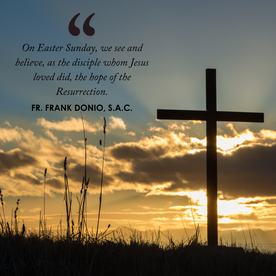 The time of the Paschal Triduum and the Easter season are almost upon us. How has the time of Lent been? It is meant to be one of ongoing conversion to Christ – metanoia. The Triduum offers us a deeper time of conversion. The Gospel readings of those days give us much to reflect on our own discipleship of Christ. On Holy Thursday, during the Mass of the Lord’s Supper, we experience table fellowship, the first Eucharist, and the witness of Christ in service to his Apostles through the washing of the feet. It is an example that we are called to follow. During the Commemoration of the Passion of Our Lord Jesus Christ, we hear of the betrayal of Judas, the denial by Peter, the suffering of Jesus, and the grief of those at the foot of the Cross, especially the Blessed Virgin Mary. In what occurs, we consider the ways in which we have not lived for Christ and how we can unite our suffering to his on the Cross. At the Easter Vigil, in the announcement of the angel to Mary Magdalene and the women at the tomb, we learn about the possibility of eternal life given to us all through the Risen Christ. On Easter Sunday, we see and believe, as the disciple whom Jesus loved did, the hope of the Resurrection. In this hope, we proclaim the Risen Christ as Savior of the world! Metanoia, ongoing conversion, is a patient journey that leads to our true joy, deeper encounter with the Risen Christ! May the charity of Christ urge us on! May you have a blessed Paschal Triduum and a joyous Easter! In God, the Infinite Love, Fr. Frank I’m not much of a poetry person. I did what I could to avoid it in middle and high school, as well as college. But there is one poem that I like—in fact, that I love. It goes like this: “Hope” is the thing with feathers - That perches in the soul - And sings the tune without the words - And never stops - at all - And sweetest - in the Gale - is heard - And sore must be the storm - That could abash the little Bird That kept so many warm - I’ve heard it in the chillest land - And on the strangest Sea - Yet - never - in Extremity, It asked a crumb - of me. That is “Hope is the Thing with Feathers” by Emily Dickenson. I always liked the poem, the way it rhymes and the way it rolls off the tongue. It became even more important to me when my father became ill. I clung to this poem because it reminded me that hope is always with us; that even in the greatest storm, hope remains and remains without ceasing. As Christians, we cling to hope. This season of Lent which we find ourselves in right now is a period that prepares and leads us to that ultimate instance of hope in the Christian life: the Resurrection. Much like the hope that Dickenson writes of in her poem, the hope of the Resurrection remains with us at all times. It never stops, it remains with us in our souls, and it is, if I may create a word, “unabashable.” The thing is, it can be hard to see this hope in our lives, regardless of its unceasing presence. Pope Francis dedicates two paragraphs of Fratelli Tutti to the virtue of hope. He writes: Hope speaks to us of a thirst, an aspiration, a longing for a life of fulfillment, a desire to achieve great things, things that fill our heart and lift our spirit to lofty realities like truth, goodness and beauty, justice and love… Hope is bold; it can look beyond personal convenience, the petty securities and compensations which limit our horizon, and it can open us up to grand ideals that make life more beautiful and worthwhile” (Fratelli Tutti, 55). Hope transcends our ups and our downs, our individual trials and tribulations, not because they are insignificant, but because the Resurrection, in the end, is greater than every one of those. The hope of the Resurrection doesn’t minimize our trials, or even our personal convenience and petty securities, but it is the light which illuminates the darkness and allows us to move past them on our journey with Christ. The hope of the Resurrection, the hope of Christ perches in our soul and it sings the tune of Alleluia (pardon my use during Lent) without ceasing. This hope, much like the little bird that Dickenson describes, is in fact sweetest in the gale, in the storm, because we are called to recall that Jesus Christ will provide for us in ways that no other person or thing ever can. In the midst of Lent, much like through all of our sufferings, hope can be heard as a melodious tune above the groans of those trials which we face. May we look to hope, the thing with feathers, the Resurrection, this Lent and always. For more resources to accompany you during your Lenten journey, please click here. **This blog was originally published on March 16, 2021.**
“Peter and his companions had been overcome by sleep, but becoming fully awake, they saw his glory and the two men standing with him.” -Luke 9:32 Twice in the Gospels we hear of the trio of disciples sleeping at pivotal moments in Christ’s life and ministry: at the Transfiguration – in this Sunday’s Gospel – and in the Garden of Gethsemane during Christ’s Agony. Both times, Christ is in deep prayer. And both times, Peter, James, and John are “overcome by sleep.” I get it. The group of men have just hiked up a mountain. It would have been normal to rest after such a grueling endeavor. Similarly, in the Garden, Jesus took the three disciples to pray after the Feast of the Passover—a long, filling meal complete with wine. I think of all the times I’ve napped after a holiday meal and sympathize with Peter, James, and John. In these scenes, they are so human. They become tired and rest their eyes. And yet, because of their physical tiredness, they miss out on God’s glory. In this week’s Gospel for the Second Sunday of Lent, Jesus is transfigured and his three beloved disciples are offered a glimpse of the glory to come—not only the glory of the Resurrected Christ, but the glory that awaits all men and women who allow themselves to be transformed by his grace. This Lent, I find myself asking, “Am I asleep with his disciples? What’s causing me to shut my eyes to God’s glory?” These questions are what have guided my Lenten journey as I discern how to grow in holiness this season. Each year, the Church in her wisdom asks us to reflect on what is making us spiritually sluggish and helps us prepare for Easter through prayer, fasting, and almsgiving. By ramping up in these three Lenten tenets, we can grow in our ability to see God’s will and the Holy Spirit at work in our lives. Had the Apostles been awake throughout the entirety of Christ’s Transfiguration, they would have basked longer in this glory—fear and confusion would not have gripped them. Lent calls us to wake up, to be alert, not only for the Easter celebration, but for God’s invitation to greater holiness throughout our lives. Pope Francis highlights Lent as the continuation of the “journey of conversion.” This journey is a lifelong one. And yet, seasons such as Lent, which focus on an even greater attention to prayer, fasting, and almsgiving, often spur us deeper and further on this journey towards Christ. As Pope Francis encouraged in his 2019 Lenten message: Let us not allow this season of grace to pass in vain! Let us ask God to help us set out on a path of true conversion. Let us leave behind our selfishness and self-absorption, and turn to Jesus’ Pasch. Let us stand beside our brothers and sisters in need, sharing our spiritual and material goods with them. In this way, by concretely welcoming Christ’s victory over sin and death into our lives, we will also radiate its transforming power to all of creation. The goal of Lent is not only Easter, but Christ Himself. This Lent, may our participation in prayer, fasting, and almsgiving help us shake off the drowsiness that shuts our eyes to God’s glory. For more resources to accompany you throughout your Lenten journey, please click here. Questions for Reflection: Am you asleep with Christ's disciples? What’s causing you to shut your eyes to God’s glory?” **This blog was originally published on March 12, 2019.** “Jesus, let there be more of you and less of me.” This is the short prayer I was once encouraged to pray as a penance by a wise, older priest. As we find ourselves at the start of Lent, these words once again come to mind, and I would like to offer them for your contemplation. The Church offers the season of Lent as an opportunity to prepare Her children well for Christ’s resurrection–both at the celebration of Easter (March 31 this year) and at His Second Coming. These preparations take the form of prayer, fasting, and almsgiving; the spiritual, penitential, and charitable practices we take up and the worldly things we put down. For forty days we walk into the desert, just as Jesus did, to humbly open ourselves to temptations and more fully offer our lives to the Lord. So what does that prayer–letting there be more of Jesus and less of me–have to do with Lent? Well…everything. In the first reading at Mass on Ash Wednesday, the prophet Joel extols us: “Rend your hearts, not your garments, and return to the LORD, your God” with your whole hearts (Joel 2:12). The Lord does not want to see what we can do of our own strength or will during this season; He wants us to see what He can do through us and the transformation He can work within us. Lent certainly calls for a degree of testing the limits of our comfort zones. More than this, it is an invitation to leave behind our will and consider the offerings and changes that will help us become more like Christ. As you reflect on your Lenten practices, consider asking yourself: “What can I offer to Jesus? How can I make more room for Him in my life? What can I let go of that will help me on this journey?” Approaching Lent in this way necessitates an act of surrender. It requires us to focus less on the material outcomes and more on the spiritual. This might mean to not give up ice cream like you do every Lent and instead, or additionally, prayerfully consider what areas of your life you have been keeping the Lord out of. St. John Henry Newman speaks to this in a sermon for the First Sunday of Lent: “...fasting is only one branch of a large and momentous duty, the subdual of ourselves to Christ. We must surrender to Him all we have, all we are. We must keep nothing back.” This, admittedly, is a challenging invitation, but remember that we are not doing Lent on our own. We are doing it with Jesus. This act of surrender necessitates reliance. And this reliance requires humility; an admission of our own weakness and powerlessness compared to Christ’s great strength. When you want to snooze your alarm and eschew the morning prayer time you’ve committed to, offer that to the Lord. When you are tempted to join in the office gossip, ask for Jesus’ strength. Ordinary as these offerings may be, that does not mean they are easy. If we have chosen to subdue ourselves for Christ’s sake, we can trust that He will provide the grace and strength we lack. As Catherine Doherty writes in Season of Mercy, “Mortification and penance are a passionate response of a man to a Passionate Lover who is God.” In humbly striving to more fully do the will of the Father, we naturally make more room for Jesus. As you surrender yourself to Him this Lent, also rely on Him. He wants us, and the attachments that bind us, to shrink away only so that His mercy and love can reign more completely. “Jesus, let there be more of you and less of me.” It’s amazing to think that we have wandered with Jesus in the desert for nearly forty days now. I have taken this Lenten season to feel more connected with Jesus and strengthen my relationship with him in prayer. This past Sunday, the Church celebrated Palm Sunday, which commemorates Jesus’ journey into Jerusalem and marks the first day of Holy Week, one of the most important times in our faith. The rest of this week consists of Holy Thursday, Good Friday, Holy Saturday, and Easter, all of which are wonderful times to reflect on the strength and love shown by Jesus during his final days, his Death, and his Resurrection. The Gospel for this past week is one that I always find interesting to hear, as it gives a lot of insight into some of the traditions that we see during our usual Sunday services. For example, in this Gospel we hear about the Body and Blood of Christ at the Last Supper, “While they were eating, Jesus took bread, said the blessing, broke it, and giving it to his disciples said, ‘Take and eat; this is my body.’ Then he took a cup, gave thanks, and gave it to them, saying, ‘Drink from it, all of you, for this is my blood of the covenant, which will be shed on behalf of many for the forgiveness of sins. I tell you, from now on I shall not drink this fruit of the vine until the day when I drink it with you new in the kingdom of my Father (Mt 26:14—27:66).” While not the direct translation said during Mass, this is something that we hear every time we are at church, something that is just ingrained in the flow of Mass, yet here, in one of the most important readings in our faith, we see how it first began. I like to imagine myself as a fly on the wall during the Last Supper. How did the apostles react? What was their body language? Were they scared, confused, or excited to be with Jesus? Jesus knew what he was about to face on the Cross; he knew about his eventual Death and Resurrection. Yet, he knew his work before those events was not done; he had to continue to preach to the apostles. In hindsight, probably no one would’ve expected him to do that; he was facing death! Nowadays, people will say, “If you knew you only had one week left before you died, what would you do?” The usual answers are things like going on a fancy vacation, winning the lottery, and completing items on one’s bucket list, but the reality is that most of us don’t know when our time will come. On the contrary, Jesus did know what his fate would be when he entered Jerusalem. He knew the importance of his death on the Cross, and he knew it was important for him not to stray from his intentions. The strength shown by Jesus in this Last Supper is one that few could’ve shown, and it is important for us to recognize as we continue through Holy Week. As we finish up our 2023 Lenten season, I hope that you all have taken some time to deepen your relationship with Christ and reflect on the importance of the season in your own heart. May these last few days of Lent guide you through some of the darkest days of our Church into the glory of the Resurrection. I hope you all have a wonderful Easter celebration!
As I have gotten older, my favorite part about Lent has become the fact that we have the privilege of willingly walking into the desert - into these 40 days - with our Lord. I think there are a lot of times in our lives when we suddenly find ourselves in the desert - desperate for water, nourishment, or companionship. It is in the desert where we not only grow in intimacy with the Lord, but are also able to be strengthened through real repentance. What is true for us in the deserts of our lives is the same thing that was true for the Prodigal Son in this Sunday’s Gospel: we receive the promise of a Father who receives our repentance with mercy. The story of the Prodigal Son is an important one for us to reflect upon as we continue on our Lenten journeys - it is through repentance that the very son who squandered his inheritance is welcomed back with open arms into the mercy of his father. And the story doesn’t end there: not only does the father embrace and welcome his son back, he rejoices and celebrates his return for those around him to see. It is through our repentance that we experience the mercy of God; it is through our repentance that we receive the promise of the desert of these 40 days. This is so beautifully echoed in all the readings that the Church gives us during this season: God the Father rejoices when we are brought back to life again (Luke 15:32). We as Catholics have the unique privilege of receiving this mercy every time we hear the words of the priest absolving us in the Sacrament of Reconciliation. Our moments of feeling desperate in the desert can be alleviated by honest repentance. After one particularly frustrating time in my life, I remember feeling like the Prodigal Son: convicted that I needed to repent and return to God, but also feeling shame over all the ways that I had squandered what the Lord had given me. And in that moment a priest reminded me that confession is always a place of victory. Like the prodigal son who acknowledged his failures and was welcomed back with mercy and celebration, we too find an outpouring of mercy and grace when we reconcile ourselves to God. As we journey towards Calvary, we do so knowing that our repentance leads to an encounter of mercy and ultimately to victory. Questions for Reflection: What are some moments in your life when you’ve encountered the mercy of God and others? How did these moments affect you? For more resources to accompany you in your Lenten journey, please click here. **This post was originally published on 3/28/2019** On the First Sunday of Lent, the Gospel described how Jesus fasted for forty days and forty nights, and yet when Satan approached him in this state of hunger, he was still able to resist the temptation to turn stones into bread and provide food for himself. Jesus responded to this test by recalling the words of Deuteronomy 8:3, “[The LORD] therefore let you be afflicted with hunger, and then fed you with manna, a food unknown to you and your ancestors, so you might know that it is not by bread alone that people live, but by all that comes forth from the mouth of the LORD. This passage pairs beautifully with the brief but profound and beautiful reflection contained in that Sunday’s Prayer after Communion: “Renewed now with heavenly bread, by which faith is nourished, hope increased, and charity strengthened, we pray, O Lord, that we may learn to hunger for Christ, the true and heavenly Bread, and strive to live by every word which proceeds from your mouth. Through Christ our Lord.” With these words, the liturgy reminds us of why fasting is so central to our Lenten observances. Firstly, when we are “afflicted with hunger,” we more readily recognize our frailty and our dependence on God’s providence, just as the Israelites did when the Lord provided manna to sustain them in their desert wanderings. In our weakness and tendency toward self-reliance, we are invited to acknowledge that the food that we have is a gift which we receive from the Lord’s bounty. Second, we are reminded that the physical hunger we experience is not mortification for its own sake, nor do we choose to feel this hunger simply to “appear to others to be fasting” (Mt 6:16) and score points with them or with God. Rather, foregoing physical nourishment is a means towards the end of “learn[ing] to hunger for Christ, the true and heavenly Bread.” This penance reorients our appetites, redirecting them from worldly comforts to that which provides true sustenance—Christ, who offers his very self to us as “the bread of heaven” and “the cup of salvation.” Indeed, as Jesus says, “My flesh is true food, and my blood is true drink. Whoever eats my flesh and drinks my blood remains in me and I in him” (Jn 6:55-56). Therefore, “The principal fruit of receiving the Eucharist in Holy Communion is an intimate union with Christ Jesus” (Catechism of the Catholic Church, 1391). While we often seek to satisfy our earthly cravings through superficial means, Christ satisfies our hunger for goodness and love in a way nothing on earth could. The relationship into which we enter through the eucharistic banquet sustains us in our day-to-day living and puts us in touch, in intimacy with Christ who knows well our sufferings, offers us compassion and solidarity, and models for us a way forward. Having received this heavenly nourishment, Jesus abides in us so that God’s grace can act in us more freely. It turns us outward in service of others, for “As bodily nourishment restores lost strength, so the Eucharist strengthens our charity, which tends to be weakened in daily life…By giving himself to us Christ revives our love and enables us to break our disordered attachments to creatures and root ourselves in him” (Catechism of the Catholic Church, 1394). Looking beyond our own needs and desires, we recognize the needs and desires of our neighbor and are moved to action. We are drawn “into Jesus’ act of self-oblation…More than just statically receiving the incarnate Logos, we enter into the very dynamic of his self-giving” (Deus Caritas Est, 13). We are moved to acts of service and almsgiving, to be bread for others. Indeed, “The Eucharist commits us to the poor. To receive in truth the Body and Blood of Christ given up for us, we must recognize Christ in the poorest, his brethren: ‘You have tasted the Blood of the Lord, yet you do not recognize your brother’” (Catechism of the Catholic Church, 1397). As we fast this Lent, then, let us be mindful of how our hunger directs us to Christ present in the Bread of Life and in our neighbor. The grace before meals I have prayed since I was a child sums this up beautifully: “Señor, da pan a los que tienen hambre y hambre de ti a los que temenos pan” (“O Lord, give bread to those who hunger, and a hunger for you to those of us who have bread”). 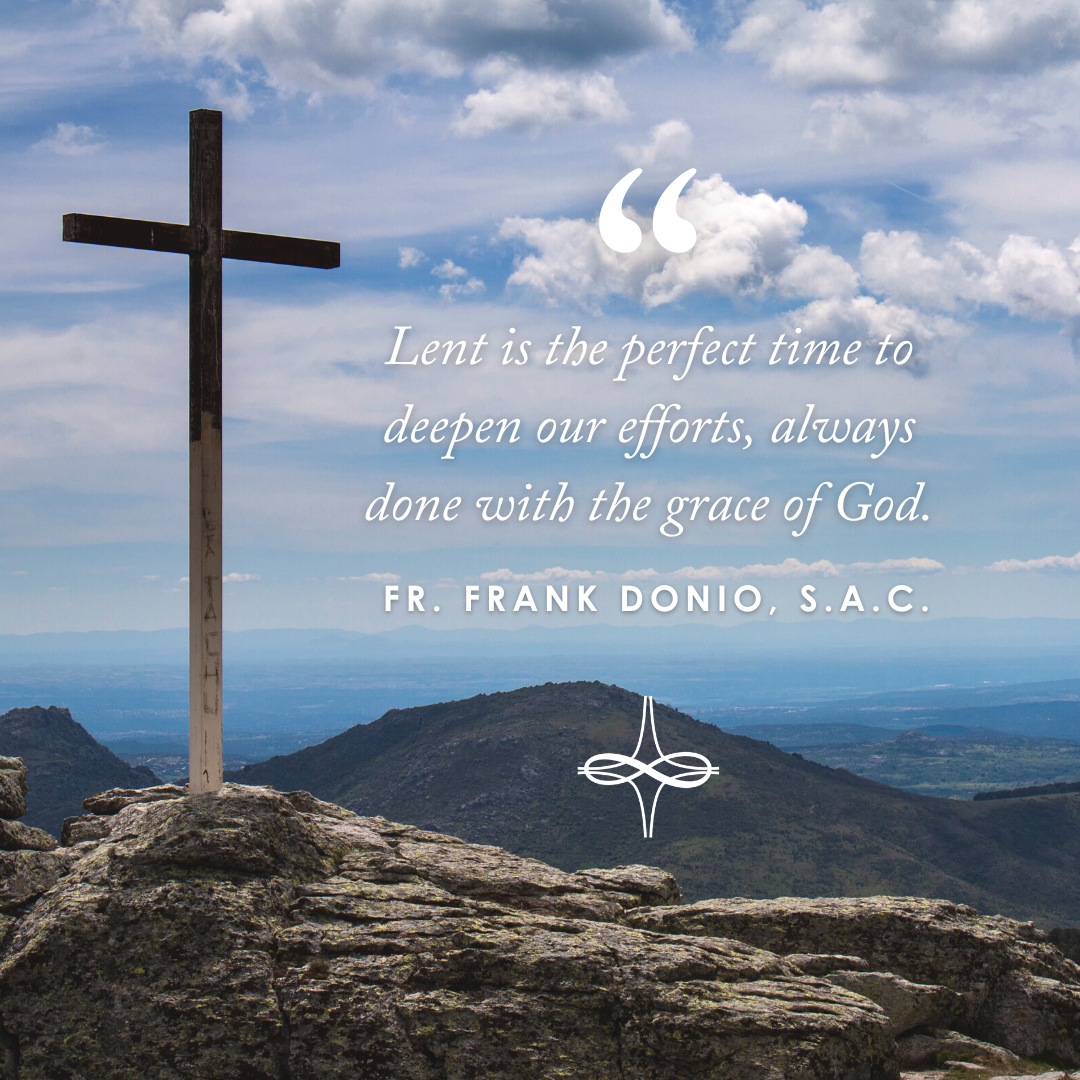 The tenth anniversary of the election of Pope Francis was on March 13th and anniversary of the inauguration of his Petrine Ministry was on March 19th. As we commemorate these special anniversaries, it is worth reflecting on his continual call to all the baptized to share responsibility for the mission of Christ and the Church as missionary disciples. He is simply restating the teachings of the Second Vatican Council. Living this mission is part of our call to holiness. Pope Francis describes holiness in Gaudate et Exultate “To be holy does not require being a bishop, a priest or a religious. We are frequently tempted to think that holiness is only for those who can withdraw from ordinary affairs to spend much time in prayer. That is not the case. We are all called to be holy by living our lives with love and by bearing witness in everything we do, wherever we find ourselves. Are you called to the consecrated life? Be holy by living out your commitment with joy. Are you married? Be holy by loving and caring for your husband or wife, as Christ does for the Church. Do you work for a living? Be holy by laboring with integrity and skill in the service of your brothers and sisters. Are you a parent or grandparent? Be holy by patiently teaching the little ones how to follow Jesus. Are you in a position of authority? Be holy by working for the common good and renouncing personal gain” (14). Prayer, both communal and individual, along with the Corporal and Spiritual Works of Mercy, which Pope Francis has emphasized often, will aid us in living holiness in the way that he describes. Lent is the perfect time to deepen our efforts, always done with the grace of God. Ad multos annos, Pope Francis! May the Charity of Christ urge us on! In God, the Infinite Love, Fr. Frank “Return to me with your whole heart, with fasting, and weeping, and mourning; Rend your hearts, not your garments, and return to the Lord, your God. For gracious and merciful is he, slow to anger, rich in kindness, and relenting in punishment” (Jl 2:12-13). There’s a moment in every Lent when I begin to stumble. When the promises I made seem too difficult, when I convince myself that the Lord doesn’t need my sacrifice, when I begin to follow the call of comfort and leave Christ’s side—and very suddenly I find myself lost in the desert. Maybe this experience sounds familiar to you, finding yourself two, four, six weeks into Lent, and all of a sudden you lose your motivation and forget why you decided to make your Lenten promises in the first place. It can be tempting when you find yourself in the place I fondly call “the mid-Lent slump” to give up entirely and say, “Maybe next year will be better,” “Maybe next year will be my year,” but in this post I want to present a different solution. This year, when we find ourselves lost in the desert, let’s press into the discomfort and ask Christ to teach us how to be with Him there. There’s a meditation that I have found to be incredibly helpful when I find myself in this place during Lent. Begin by placing yourself at the scene of the Baptism in the Jordan. What does it look like, smell like, sound like? How do you feel when it is revealed that the man in front of you is the Son of God? Then Jesus begins to walk into the desert and you follow Him. Why do you follow? Have you prepared for this trip, or have you brought nothing, trusting that He will provide? How do you feel now that you are in the desert? When we find ourselves in “the mid-Lent slump,” we need to remind ourselves of why we committed to Lent in the first place. When we are able to remember this “why,” we are given new strength to continue into the desert, to press in with Jesus into the discomfort, leaning on Him for strength, because we realize we aren’t alone in the desert. All of this, however, can be very difficult without practical steps to return to Jesus in the desert. Here are some that I have found to be most helpful when Lent becomes difficult.
Most importantly, as you press into Lent in the midst of the “slump,” remember the Lord’s unending mercy and love for you. As it says in Joel 2, God desires for us to return to Him with contrite hearts so that He can pour out His mercy and grace onto us. When you find yourself struggling in Lent, turn back to Him in all His kindness, and ask Him to walk with you and give you the strength you need to continue following Him into the desert.
Deus Caritas est: God is Love. How many times have we heard this simple yet profound theological truth in a homily, story, or teaching? How many times have we taken this for granted? In a world where truth often seems subjective, God’s love remains a refreshing and comforting constant in the Christian life. If this were not so, for what purpose, let alone by what means, would you or I exist? It is this perfect love of God which sustains us each and every moment of eternity. In fact, it’s God’s very nature, so bursting with love, that wills us into being. So too must our love for our neighbors guide and give purpose to our lives.
The liturgical season of Lent is an especially wonderful opportunity for us to reorient ourselves towards God’s love and mercy. As we prepare to celebrate the ultimate expression of love the world has ever known this liturgical season, we may give up something we fleetingly desire in order to be made more aware of our need to depend on the One Love, the True Love, the Infinite Love. Of course, we can do more throughout Lent, but take to heart the suggestion of my bishop: [T]his Lent, fast and abstain when the Church requires it; give something up to make room for God and his mercy to fill you. Pray more and pray deeply and whenever you can because God listens to you: prayer puts you in touch with God and his mercy. Do something good for someone else every day; resolve to care about someone else every day, because God does, Jesus does and wants you to be like him, loving and full of mercy. Don’t make this Lent a complicated regimen of resolutions and promises that will unravel a week from now. Make it simple. Make it real. [emphasis added] Lent is not a time of self-pity or bemoaning our spiritual shortcomings. To fail to acknowledge God’s willingness to have mercy and forgive the sinner of his or her faults places sin as the end without further hope of relief, restricts one’s view of God as having limits on his love, and risks committing a sin against the Holy Spirit (i.e. believing that the magnitude of a sin is greater than God’s power— and continuous willingness— to forgive [cf CCC 1864]). While Lent brings to mind the classic images of sackcloth and ashes, the Lord desires something much more personal than just the recognition of our sins—“sincere, heartfelt repentance, change of heart, conversion” is what each of us is called to offer the Lord with the same Love He offered to those He encountered in His earthly ministry and ultimately from the Cross. “I desire mercy, not sacrifice,” our Lord, echoing the words of the prophet Hosea, declares to the Pharisees during the calling of Matthew (cf. Hosea 6:6) For us today, these words still ring true. Lent is not an easy time, but it invites us to shake us out of our spiritual complacency if we are to answer the Lord’s call to conversion. This may be uncomfortable. Receiving the ashes on our foreheads tomorrow, however, signifies our commitment to God that we will endeavor each day—and not just until Easter Sunday—to change our lives to be (once again) oriented towards God in avoidance of the sin and distractions which lead us away from His love. While we seek forgiveness from God, we are also to freely forgive others, “And forgive us our debts, as we also have forgiven our debtors.” Even if we fall along the way, the important thing is to pick ourselves up and start again— the Lord is patient! In closing, let us reflect on a final word from the Venerable Fulton Sheen: God loves you despite your unworthiness. It is His love which will make you better, rather than your betterment which will make Him love you. … Say to yourself over and over again, regardless of what happens: “God loves me!” And then add: “And I will try to love Him!” (Fulton Sheen, Remade for Happiness: Achieving Life’s Purpose through Spiritual Transformation (San Francisco: Ignatius Press, 2014), 187, 25.) **This post was originally published on 2/28/2017** As a young girl in elementary school, I attended a moderately small school—about sixty students in a grade level split into two classrooms. Each year, with the coming of a new grade, the class of students would get mixed up, and I’d usually have to make new friends. For some reason, I always gravitated toward meeting the students completely new to the school. At some point all of us have felt left out in one way or another, and I always wanted to make sure these new students didn’t feel ignored or out of place. This prompting to want others to feel included and like they belong has always stuck with me. I felt this most especially when I began to open my first house to a small women’s group gathering about once a week. At first, I was nervous to open my home to people I didn’t know or didn’t know well. But after my first few hosting opportunities, I found it to be something I enjoyed tremendously. I began to seek out additional chances for hosting themed activities, such as a Lenten soup and salad potluck or what has now turned into an annual cookie party tradition during Advent. And the best part: making new and lifelong friends. During the start of the Covid-19 pandemic, I moved to a new city. That meant a new home, new neighborhood, new church, new friends, etc. Years of isolation during the pandemic has made it difficult to meet people when you start over after a move. Last year, I decided to try something new—hosting a “Blessed Brunch” for local Catholic women at my new home. I hardly knew most of the women who attended the brunch, but I’ve walked away from that event with wonderful new friends and connections at local parishes. A month later, one of the women from the Blessed Brunch invited me to a small women’s group. This group has been a wonderful source of comfort and friendship to me over the last year. We each take turns hosting the monthly gathering, inviting others we know who may be interested in joining us. A woman from this group always asks if she can invite a friend in need of community whenever we host additional gatherings outside of the small group. I find this to be a very touching gesture and one that encourages me to think of additional people in need of community around me. I love this about hospitality: in the action of making our homes—and hearts—open to others through hospitality, we become more selfless by making room for and serving others. By being welcoming, we share what we have, whether that be food, time, or a willingness to listen and comfort. These small actions reflect God’s love for us. Jesus’ parable of the Good Samaritan is a classic example of how one man made himself vulnerable and available to the needs of another—an act of both generosity and hospitality. In contrast, when we serve out of a feeling of obligation, the joyfulness and warmth of giving in that hospitality is lacking. During Jesus’ public ministry, he and his disciples relied on the hospitality of others as they ministered to others. “Without cost you have received; without cost you are to give,” Jesus said (Mt 10:9-11). The early Christians relied heavily on the hospitality of other Christians who might have been strangers. As Acts 2:44-47 describes, “All who believed were together and had all things in common; they would sell their property and possessions and divide them among all according to each one’s need. Every day they devoted themselves to meeting together in the temple area and to breaking bread in their homes. They ate their meals with exultation and sincerity of heart, praising God and enjoying favor with all people. And every day the Lord added to their number those who were being saved.” As we listen to the invitations and promptings of the Holy Spirit this Lent, let us discern how we can invite Christ and others in our community into our hearts. Perhaps he is calling us to host a Lenten Bible Study small group or a Friday night soup, salad, and Stations of the Cross potluck. Maybe there is an opportunity for you to invite a catechumen or someone new to you or your church to attend an event together during the Lenten season. In the serving of others, we serve Christ himself. How might you be called to extend hospitality to others this Lent? How does one “prepare for Lent” in our current world? How might you quiet your life for forty days and be as if in the desert with Christ? What could Lenten preparations look like? These are the questions I considered as I began this reflection. As a mom, wife, teacher, and Catholic woman in today’s world, my life is hectic and my focus is often driven by the next prioritized event or deadline. If we’re being honest, I don’t have forty days to be consumed by a literal or figurative desert for prayer and quiet. But is that just the kind of reasoning that society is telling me? Where do I find God in the noise?
To more easily consider Lent this year, I broke it down into four categories of my life. This Lent as a mom, I want to cherish the little joyful moments. My son is now three, and other parents may understand when I say that sometimes three is exciting and adorable, but other times it’s exhausting and I count down the minutes until bedtime. Children are the most wonderful blessing, but they are so much work too. I want to be playful with Vincent this Lent, I want to do less complaining or rushing him through things, and I want to cherish the little joyful moments. This Lent as a wife, I want to be in solidarity with my husband as we try our best to support each other with Lenten sacrifices. For me, indulgence is an area where I want to work on sacrificing until Easter. It will be challenging, but it’s easier when you have someone beside you, helping you stick to a goal or a plan, and I know we can do this for each other. Forty days is a good time to get into better habits together and put our best feet forward for the Easter season. This Lent as an educator, I want to intentionally pray for each of my students and their families. Having moved to teaching at a new school this year, I have new students and a new environment where I can share with children how precious they are. Although I’m not at a Catholic school, I can still treat each of my nineteen students with intention and consider them and their families throughout Lent. This Lent as a Catholic woman, I want to add on quiet. This, for me, will look like turning off the radio for one whole commute to or from work a few times a week. During that time, I’ll sit with God and reflect: consider my actions, my gratitude, and my intentions for my day or my evening. I’ll try to avoid just picking up the phone to call someone and complain about a bad day or listening to music to drown out the day. I want to add on quiet. Thinking back to my first questions, I still am going to find it difficult to be in quiet with God and not just find time but MAKE time for Christ. I really think that’s the difference: when we only have moments here and there to give, we’re not at peace. When we make time for Christ—schedule it into a calendar or create a time of the day for just us and God—we will feel and find his blessings that much more easily. My challenge for you is to schedule time for God each week in Lent. Priorities will still be important and life will still be hectic and busy, but we can only sit with Christ in the desert for forty days. I wouldn’t want to miss that for anything in the world. My scheduled times with God for the next forty days will be: Tuesdays on my ride home from work, Saturday mornings for a few minutes before everyone is awake, Friday mornings on my way into work, and Sundays during the Gospel and homily when I can think and reflect on the Word in Scripture. I know I can achieve these four times each week, and I know it’s not too much for my to-do list. I’ve even added them to my calendar so I can’t forget. We’re exhausted; Christ was too. We’re weary and burnt out; Jesus’ apostles were too. We’re calling out to our Heavenly Father, “Why have you forsaken me?” as Christ did (Mt 27:46). All you have to do is make time and be open. 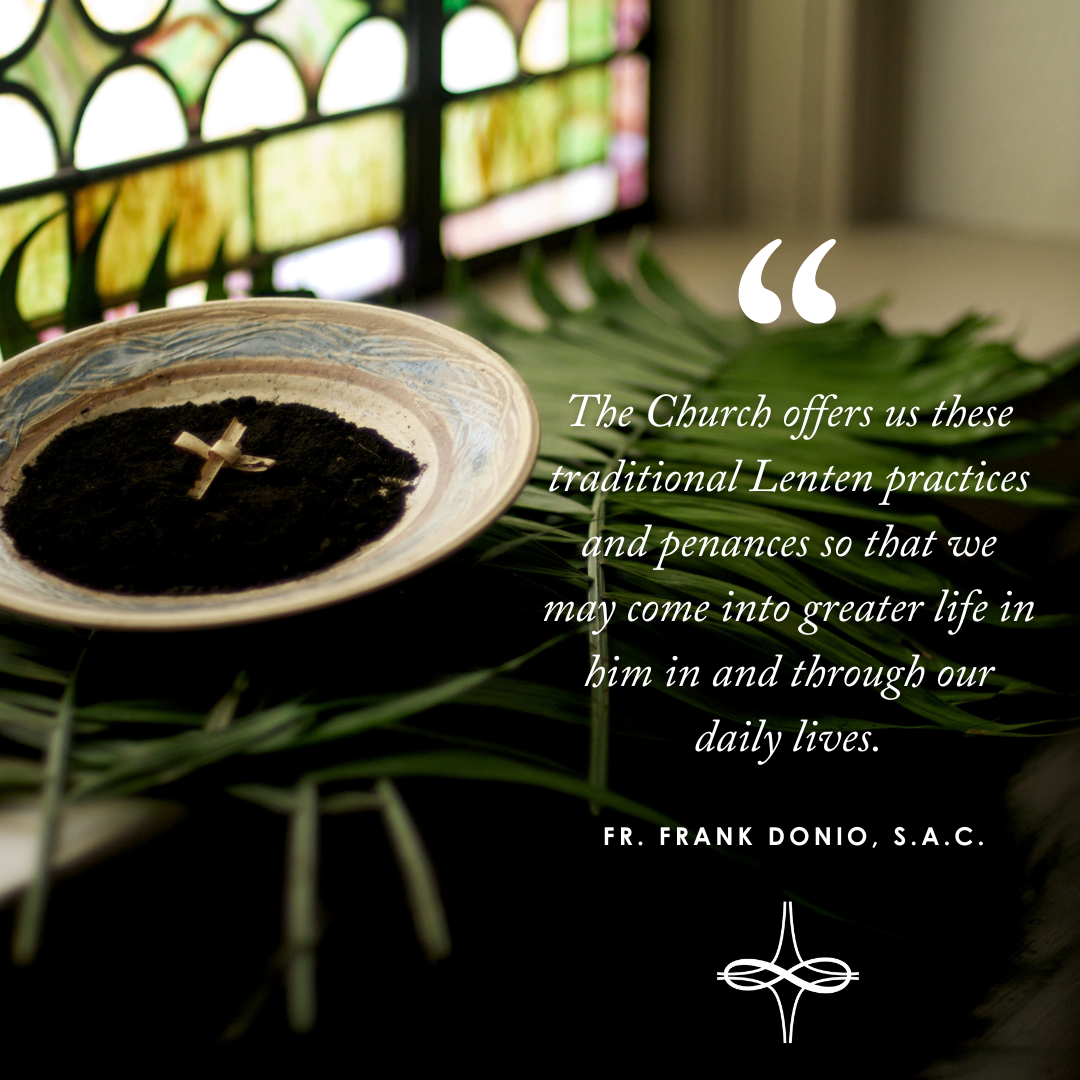 Lent is not a diet program nor is it a spiritual competition. Prayer, fasting, and almsgiving are means to an end, not ends in themselves. They are the recommended ways for us to deepen our encounter with Christ and grow in holiness. We seem to know this but when a food that we have given up for Lent is placed before us, do you say, “NOOOO, I have given it up for Lent!”? Of course, this is an exaggeration to make a point. Pope Francis in his 2023 Lenten Message focuses us on the purpose of penance during Lent. “Lenten penance is a commitment, sustained by grace, to overcoming our lack of faith and our resistance to following Jesus on the way of the cross. To deepen our knowledge of the Master, to fully understand and embrace the mystery of his salvation, accomplished in total self-giving inspired by love, we must allow ourselves to be taken aside by him and to detach ourselves from mediocrity and vanity. We need to set out on the journey, an uphill path that, like a mountain trek, requires effort, sacrifice, and concentration.” Prayer, fasting, and almsgiving do take “effort, sacrifice, and concentration.” They are also “sustained by grace.” We cannot fool ourselves into thinking that we are doing this on our own. What we are doing is cooperating with the grace of Christ who wants us to deepen our encounter with him. The Church offers us these traditional Lenten practices and penances so that we may come into greater life in him in and through our daily lives. As Pope Francis reminds us, “While our ordinary commitments compel us to remain in our usual places and our often repetitive and sometimes boring routines, during Lent we are invited to ascend ‘a high mountain’ in the company of Jesus and to live a particular experience of spiritual discipline – ascesis – as God’s holy people.” May the charity of Christ urge us on! In God, the Infinite Love, Fr. Frank Lent is one of the holiest times for our Church: the forty days of waiting for the Death and eventual Resurrection of Jesus. Beginning with Ash Wednesday, these forty days can sometimes seem to some like a blur, but to others, they can be filled with anxiety and anticipation. Throughout this season, there are many different ways in which you can prepare for this holy celebration. Some people choose to give something up, a way to imitate and participate in Jesus’ sacrifice when he went into the desert to pray and fast for forty days before later dying on the cross. Typically, you would give up something that you enjoy as a self-sacrifice or challenge. I try to give up one of my favorite treats, Diet Coke, every year and call upon the Lord for strength when I am tempted to break my challenge. But I always remind myself that it is okay if I do not succeed the whole forty days. Jesus showed extreme strength and self-discipline during his forty days in the desert—something most of us could not bear. While giving up my soda is not the same caliber of difficulty, it is just supposed to be a goal that I hope to achieve. One thing I try to implement in Lent is a way to better myself over these forty days. For example, while giving up my Diet Coke, I try to focus on substituting it with drinking more water or being active outside for half an hour at least three times a week. This way, I am working towards hitting other goals and striving for a new and improved me at the end of the season. The hope is that when we get to the end of the Lenten season, these goals become habits that we can follow after our Easter celebration. Some examples of other goals you could try to implement include: reading a chapter of a book each day, praying the rosary before bedtime, going on a mile walk every day, trying to learn more about different saints each week, attending daily Mass, or eating takeout only once a week. While these can sometimes seem similar to giving something up (i.e. only getting takeout once a week), I challenge you to reframe your thought process regarding these goals. Instead of thinking of them as a negative—giving something up—think of them as adding some sort of value to your life - after all, by offering these acts to God, they are enabling you to participate in Christ’s redemptive sacrifice, grow in self-control, and form beneficial new habits. This has been something that I have really struggled with and had to pray over. It has been hard to get out of the negative mindset and focus on transforming myself—mentally, physically, and spiritually—over the course of the Lenten season. However you prepare, I hope that you will go into this holy season with a prayerful attitude and allow yourself to experience change over the course of Lent. I encourage you to find ways to experience the season in an unfamiliar way, to explore new traditions and embrace the holiness of Lent. As we, as a Church, prepare for this Lenten season that will begin on Ash Wednesday, I invite you to take a look at our Lenten and Easter Resource Page. This resource page has many wonderful resources, such as podcasts, webinars, our newly-published “Lenten Activities For Youth and Young Adults” guide, and our “Introduction to Lent: A Time to Draw Closer to the Risen Lord” guide, which has more ideas for practices that can help you enter into the prayerful and transformative spirit of this Lenten season.
|
Details
Archives
July 2024
Categories
All
|
About |
Media |
© COPYRIGHT 2024 | ALL RIGHTS RESERVED



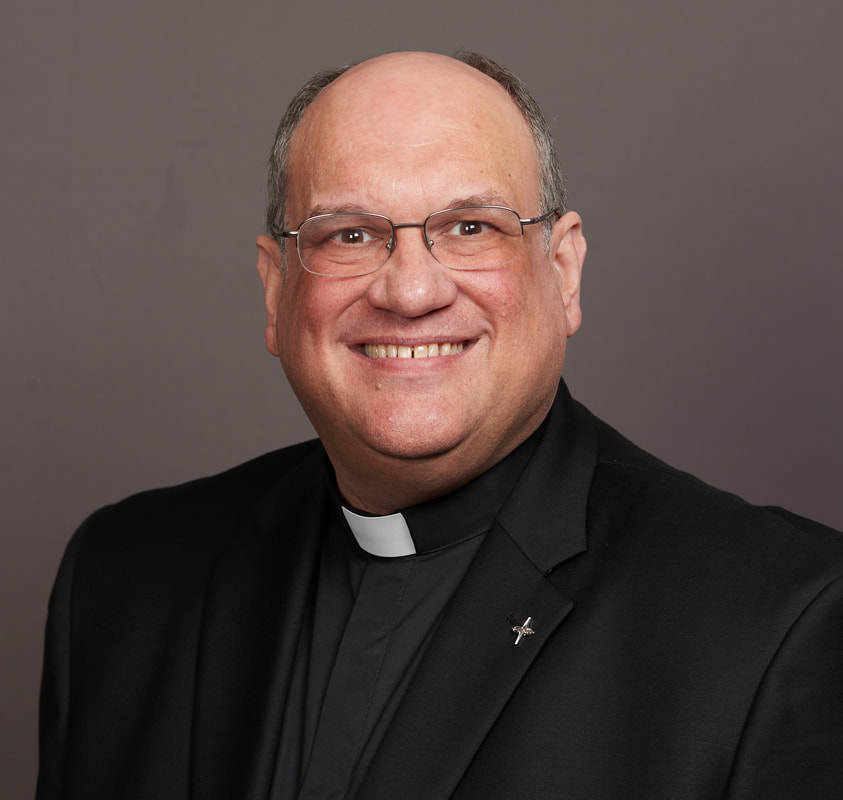


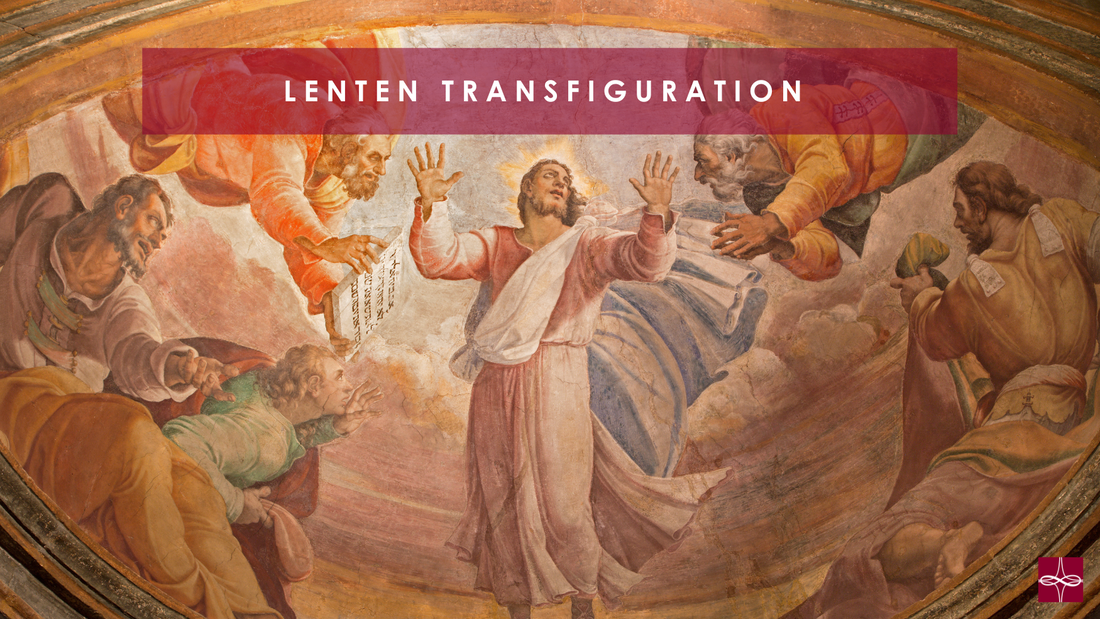

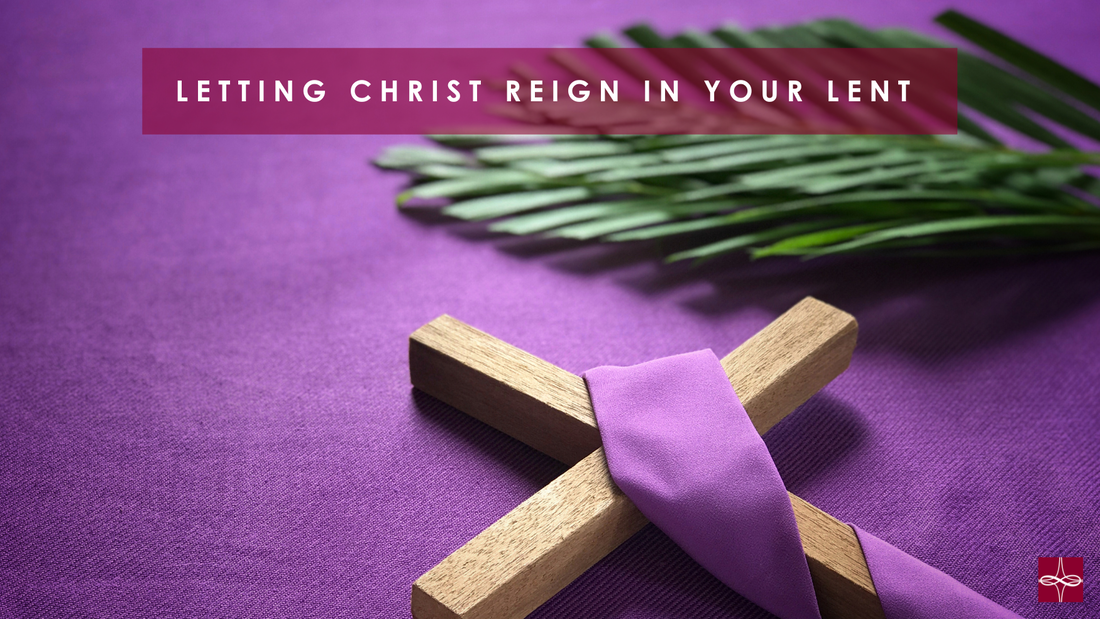
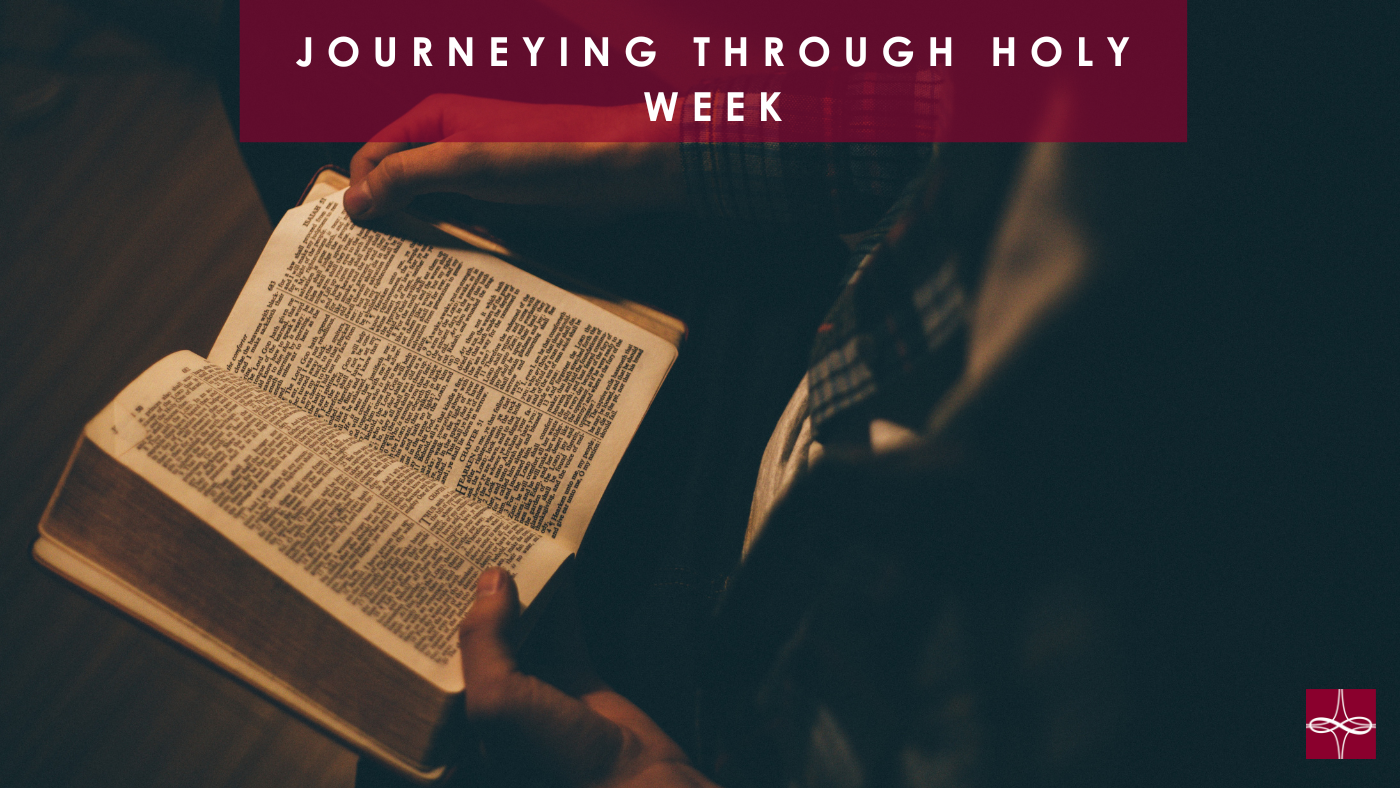

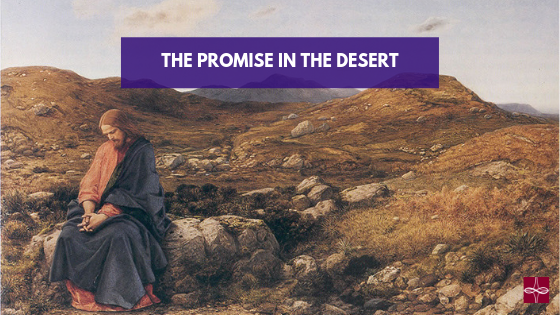

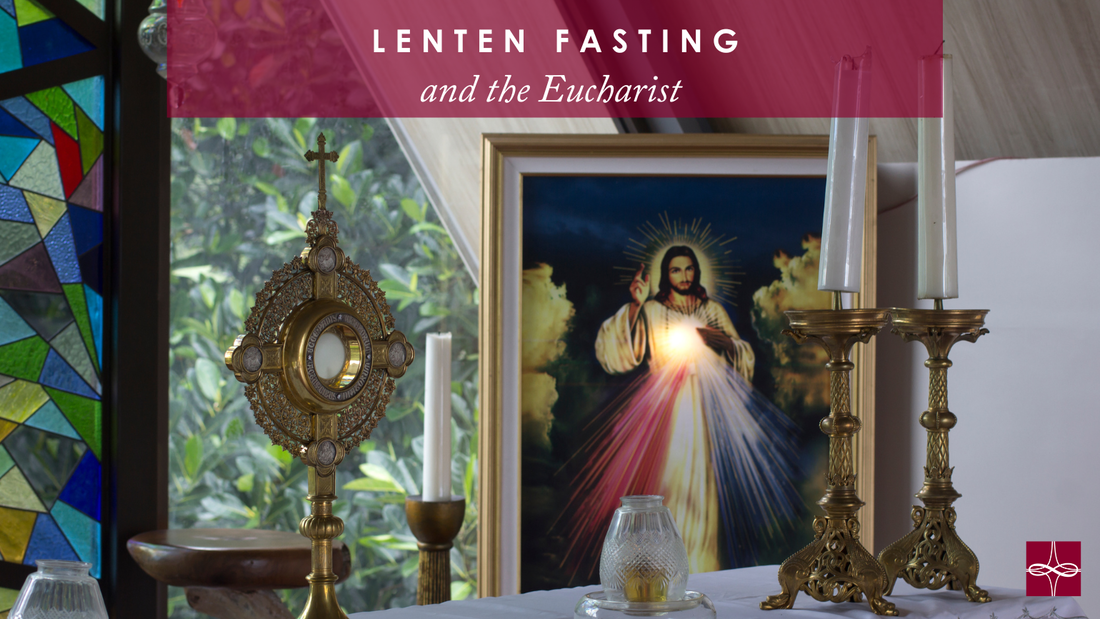

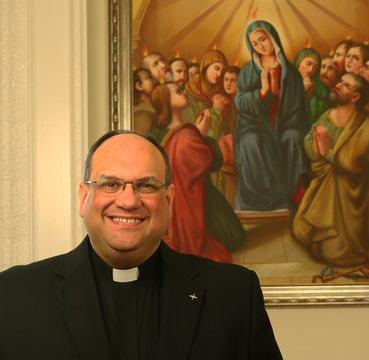
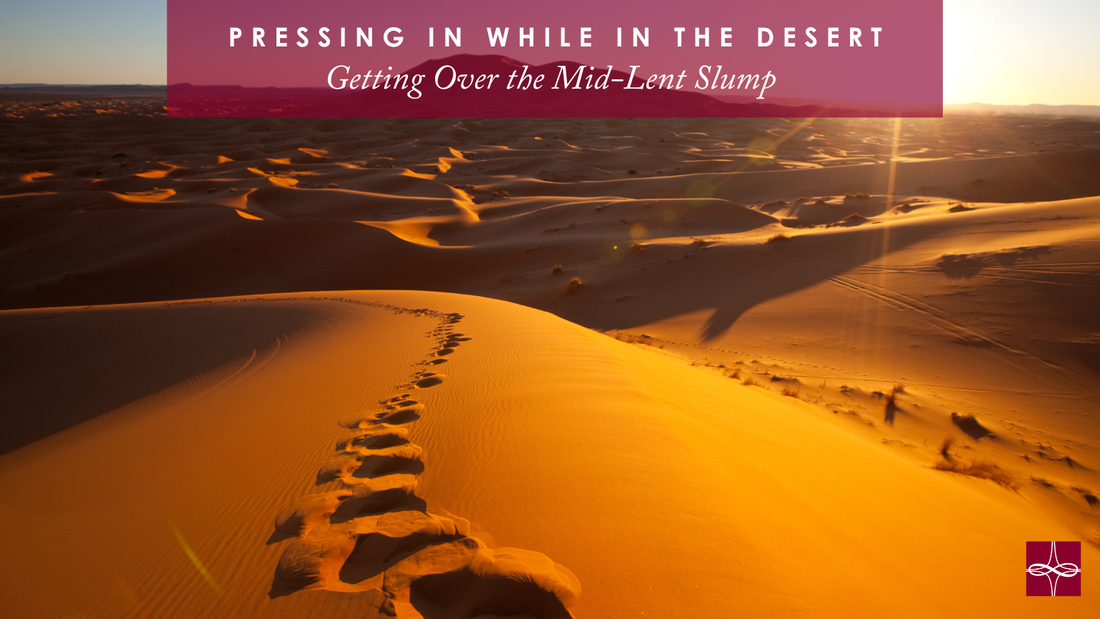

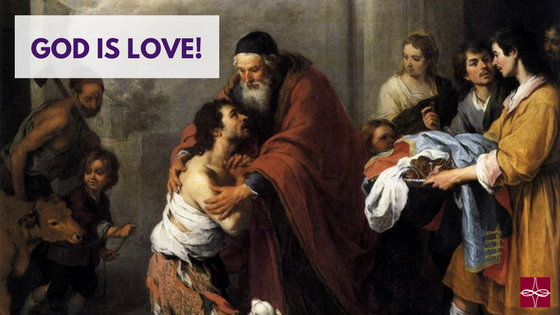





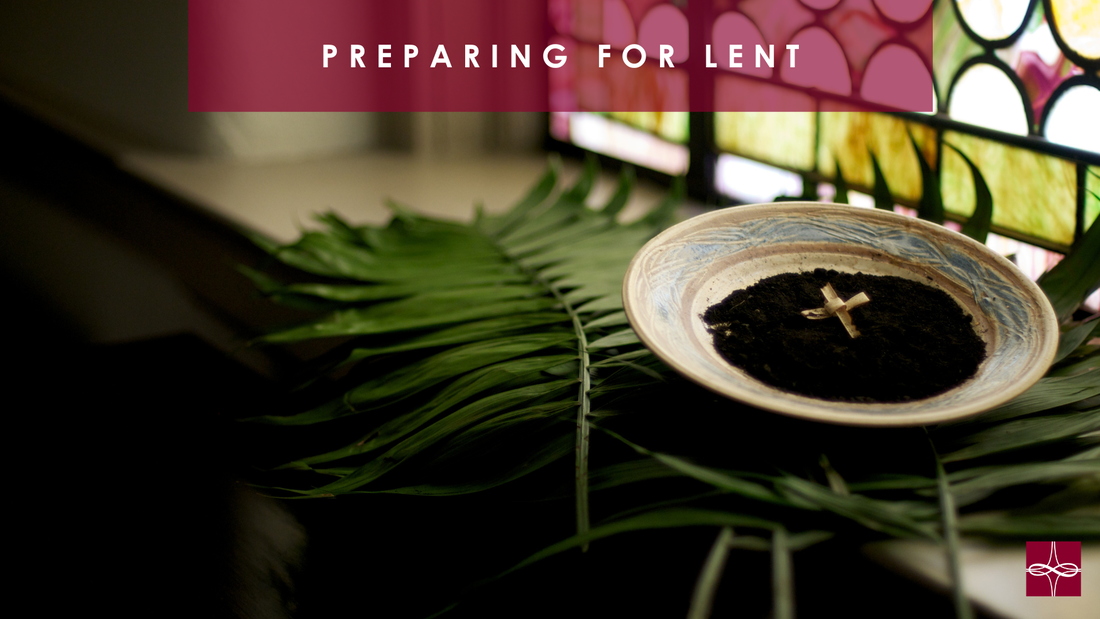
 RSS Feed
RSS Feed